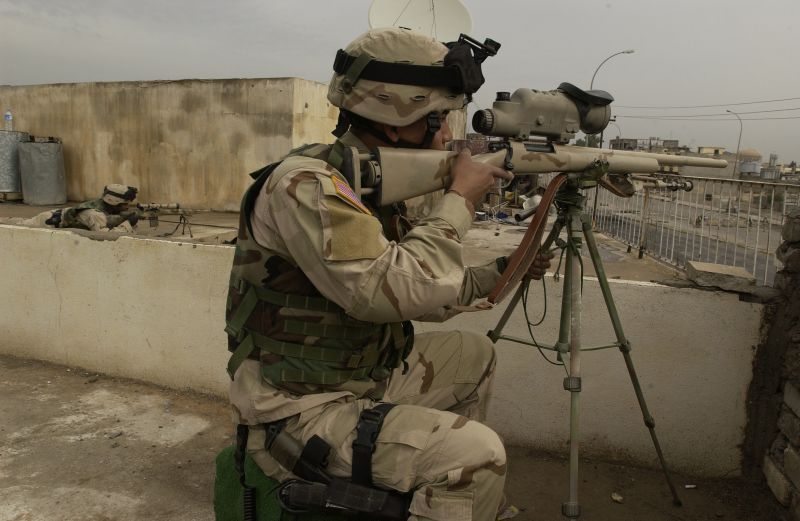Iraqi leaders should not expect US forces to return to help in a crisis once they leave at the end of the year, a senior American military official said on Wednesday.
The remarks came just days after US Defence Secretary Robert Gates ended a visit to Iraq during which he urged the country’s leaders to assess if they wanted any US troops to remain beyond 2011.
All American forces must leave Iraq by the end of the year under a bilateral security pact.
“If we left — and this is the health warning we would give to anybody — be careful about assuming that we will come running back to put out the fire if we don’t have an agreement,” the official said on condition of anonymity.
“It’s hard to do that,” he told reporters at Al-Faw Palace in the US military’s Camp Victory base on Baghdad’s outskirts.
Gates, and Pentagon officials who were part of his delegation, insisted that Iraqi leaders should consider asking some US forces to stay on, primarily to train Iraqi troops on weapons systems that will be delivered later this year, and to advise what weapons Baghdad needs to buy to meet external threats.
The official speaking on Wednesday reiterated that message, saying Iraqi forces needed training and weapons to combat external threats.
“When we do leave, Iraq will probably have less capability in terms of military hardware than any of its neighbours,” the official said.
He said the capability “will be there in the future, once they have the opportunity to buy more stuff and train on that stuff. But they won’t be as strong as some people think that Iraq will be at the end of this year,” he added.
Iraq’s military forces were largely destroyed during the US-led invasion of 2003 and were immediately disbanded after now-executed dictator Saddam Hussein was toppled.
“While there is no looming threat today, certainly you want to keep as much of a balance as possible” with neighbouring countries, he said. “Any time you have an imbalance in capability, the possibility that a threat will emerge is always there.”
He said the United States was committed to a long-term relationship with Iraq.
“The issue is not our relationship. The issue is the military presence and whether or not Iraq is at a point that it can discontinue this relationship with the (US) military,” the official said.
Iraq has taken delivery of some M1A1 tanks and other US weaponry. But in February the government postponed a purchase of 18 F-16 fighters, saying the $900 million earmarked for the deal would go to feed the poor, amid growing protests that have swept the Arab world.
The US presence in Iraq remains an emotive issue here, and although privately Iraqi leaders may want US forces to extend their stay, domestic political pressures might not allow them to say so outright.
Gates spokesman Geoff Morrell said the Pentagon chief’s message to Iraqi leaders had been: “You all need to figure out what you need of us and what’s politically feasible and we’re ready to work with you on how to address those needs.”
General Babaker Zebari, the Iraqi armed forces chief of staff, said last summer that the US withdrawal was premature and that his forces would not be able to ensure full security before 2020.
The number of US forces in Iraq reached a high of more than 170,000 following the invasion, but most troops left after formally ending combat operations last August.
Nearly 50,000 troops still remain but are due to pull out completely by the end of the year.










